#but people should actually have scars from particularly brutal or important deaths
Explore tagged Tumblr posts
Text
People need to give their life series designs more scars
#like yeah Scar and Skizz end up with a lot#which is great#and you'll get the one eye on Etho#and maybe people keep the 5am Pearl scar#but like#look at how fucked up the texture on Grian's arms are where are his scars???#especially Martyn abt this#I think he should have more scars#I know Martyn's eyes and ears lore gives people fragments on their body after each game#but people should actually have scars from particularly brutal or important deaths#I think the games should change people so they /can't/ hide from it#itching to make my life series designs can u tell-#smooziespeaks#life series#traffic life#trafficblr#life smp#traffic smp
5 notes
·
View notes
Text
ORIGINS SMP HEADCANONS (because i love them): SEASON TWO EDITION BAYBEEE
(this is really long ENJOY :gun:)
tommy
he is phil's son smile
phil's most recent son at least
he's got like one more somewhere
he picked this one up off the dangerous streets a few years ago and he's been sticking with phil ever since
his wings are small- not too small to fly, but they're untrained to the point where it would take a lot or work to get him off the ground
but at first, he didn't really seem to want to learn all that much?
(he has three scars on his face- all from trying to learn how to fly when he was younger)
(he gave up after the third one)
("if at first you don't succeed; try, try again" is his motto, and he tried all three times)
but!! phil and wilbur are very persuasive :) and now that he knows he can fly, he's not going to rest until he does
he's a little manipulative to get what he wants sometimes, but can you blame someone that lived on the street for so long?
he had to do that to survive! it's not his fault.
(it's a great excuse.)
he laughs like a kookaburra amen
he squawks when he gets scared
he chirps. he tries not to because it makes phil go absolutely bird-brained but he does sometimes and he hates it.
tubbo
NOW'S YOUR CHANCE TO BE A B[GUNSHOTS]
god he is. so fucking annoying (/rp)
he simply does not know when to stop
he ignores social cues to see when someone is annoyed
(see: he can read social cues. he does read social cues. when you get annoyed that's when he starts being more annoying, because you're more likely to give him what he wants to get him to shut the fuck up.)
he loves talking to (at) people, especially people he doesn't really know that well
so he's trying to be friends with ranboo, but the absolute prick keeps trying to avoid any actual conversations, so that's not working
he buzzes when he gets excited-happy
his fingertips are completely blackened and horrendously sharp, functioning as ten individual stingers
they don't do any actual damage but he's working on that
techno
wither hybrid (??)
how can you be a wither hybrid?? nobody got down and dirty with the wither
he's an experiment
the reason we haven't seen him yet? he's staying away from the main area of the smp
he doesn't want to ruin its natural beauty with his withering effect, so he keeps to himself on the outskirts of the smp
which sucks
withers get health from killing things
he's not fully a wither, so he gets energy from being around people and sort of draining their life force a little bit
he feels terrible when he's with just one person because they are Literally his life support and it makes the person feel like shit
when he's with a big group of people its great!! he only has to take a little bit from everyone and its barely noticable!!
but then there's the wither part. so he has to stay away.
he's always tired
always exhausted
he's a farmer, so taking it from animals works, but god does he miss people
but he can only visit a few times and for very short
(he's afraid that one of these days he'll get so bad that the next time he sees someone he'll accidentally kill them)
(it already happened once. he's blessed that he's been forgiven, even made friends with by the victims, but he doubts he'll be able to pull that off again with no consequences like last time)
wilbur
phantlings are dead elytrians, and given that wilbur was phil's son...he's a phantling
he died in the late 50s and was a librarian when he was alive, so he's very possessive (ha) over all of his things
you should never ask to "borrow" anything from him, he will hound you about it until you give it back
it's best to just say that you want something from him to keep
even if youre going to give it back
just for your own peace of mind
phantlings can feel fear and get a genuine feeling of elation from scaring people
of course, sometimes its unwelcome (feeling large amounts of fear from someone they care about in a bad way just makes them pissed)
but for the most part, wilbur loves appearing in the corner of people's visions just to jumpscare them a few minutes later
all in good fun, of course!! it's just hilarious :)
being the lighthearted, fun guy he is, he's not particularly secretive about his method of death
"how did i die? well, it all started -- ended -- on november 16th, 1958!"
"i walked out of the library late, since i took the shift for my wife since she was feeling sick and i worked there anyways,"
"the streets were dark and only lit up by gaslamps...and out of an alley...appeared..........."
techno.
he didn't mean it. wilbur isn't at all mad at him (anymore)
he was starving. he didn't know that one touch would be enough to fully revitalize him...
and murder wilbur where he stood.
sneeg
has details on everyone on the server
you Cannot Hide Shit From Sneeg
its impossible
if you find of his any shittly little mouse holes then you're doomed
you find one and there are twenty more
he's under your floorboards while you're having your important discussion about trapping the nether roof
sucks to suck ig??
he seems to be the favourite of many, which is weird since he rarely goes out of his way to actually talk to many people
he's the only person that tubbo doesn't actively try to annoy (or maybe he just doesn't find tubbo's antics all that annoying)
he's the only person that ranboo stays around (or maybe he stays around ranboo- he and Phil seem to be the only ones not off-put by his slightly sadistic and whiny demeanour (not counting tubbo, who annoys him anyways)
phil seems to be more protective of him than he thinks is normal (he lets sneeg ride on his shoulder while travelling, so he doesn't really complain)
niki is completely protective over him (again, not complaining)
contrary to popular believe, he does not get high from sugar
if anything he gets
high-per
(get it)
(high-per)
(hyper)
he's literally just a nine-year old getting a sugar rush leave him alone
phil
take the normal "bird-brain" headcanons and multiply it by like sixty-four
and you've got origins phil
he can't see glass- or, rather, he can, but it doesn't register that 'hey, this is a solid surface i am going to slam into'
its very funny for everyone else but he's pretty sure he has permanent brain damage from the blunt force trauma
if there is ANYONE on the server who dares to chirp, bird or no, they must understand that they are signing away their privacy and giving phil the right to go absolutely bonkers over them momma bird style
(shoutout to tommy, wilbur, ranboo, and fundy for having to suffer through this)
"oh??? you don't have wings?? you don't have feathers?? omg?? then what's this im preening?? what do you mean im just braiding your hair?? nono this is preening smile"
god help you if you dare to have wings
poor tommy, wilbur, sneeg, and tubbo
phil can't help himself alright
do you think he wants to be any sort of protective over sneegsnag?
no!! but he cant stop himself!! sneeg might damage his wings if he keeps flying those super long distances!!! nnnno! carry the bug man!!!
it's weird, he's always had that protective sense over ranboo, too
but ranboo very obviously doesn't have wings, so he doesn't get it...
ranboo
yes ur a peasant
yes ur poor
yes im cooler than u
what r u gonna do about it
the enderdragon's son! partially a dragon, partially enderman, partially human (don't ask, his other mom is a hybrid), all spoiled brat!
given that he has a ton of dragon genes, he's extremely possessive over his stuff and Yes He Does Do The Hoarding Thing
he has a pile of rings and gold chains and necklaces and most of his jewellery hidden underneath his bed
(if you ask him, no, he doesn't)
not to wear
just to Have
one time, fundy stole one (1) bracelet from the hoard and ranboo was sent into a panic for a good 24 hours
he wouldn't leave his cave and kept counting and recounting as if that'd make the missing piece reappear
(when fundy had to give it back because of the guilt, he expected to get his face bitten off)
(instead, he just watched as the prince was flooded with relief, telling him to get the hell out and nothing more)
it's weird, he has so much gold and even a crown, and yet here he is
living with all those people ^^^
truth be told, the enderdragon isn't a very nice dragon
nor is she a very kind queen
nor was the other queen
nor was her son
there was a mutiny in the end, leading to the dragon queen and her wife being killed brutally by the crowd of angered people
they went after their son next, who had ordered executions and worked servants to the bone just as much as they had
they cut off his wings in the middle of the square
he was sure he was going to die until a random person (a peasant) jumped up and yelled at them for publicly torturing a child
but ranboo didn't really catch all of it, given he was delirious from pain
he got to get some stuff quickly and escape with his life
this wasn't too long ago, either, so he's still trying to...adjust...to people talking rudely to him
(he's also trying to adjust to not having wings)
(hence why he hurls himself off the edges of cliffs and then has to teleport to the bottom instead of glide. he keeps forgetting.)
#this is so long#origins smp#originssmp#ranboo#tubbo#philza#philza minecrft#sneegsnag#wilbur soot#technoblade#tommyinnit#help this is so long
143 notes
·
View notes
Text
Stormé DeLarverie: the forgotten heroine of the Stonewall Riots
by Deirdre Swain
During Cork Pride Festival in August 2019, the Cork City Libraries’ Stonewall Riots exhibition was displayed in the city. This exhibition commemorates the 50th anniversary of a significant LGBT uprising in New York. I would like to introduce one of the main protagonists of this momentous event in LGBT history. When the Stonewall Riots of June 1969 and the struggle for LGBT rights are mentioned and celebrated, figures such as Craig Rodwell and Frank Kameny are regarded as two of the principal people involved in bringing about a positive change for the LGBT community. However, the most important person in this event has essentially been forgotten and erased from LGBT history. Her name is Stormé DeLarverie.

So who was this important champion of LGBT rights? Stormé DeLarverie was born in Louisiana in 1920 and grew up in New Orleans. Her mother was an African-American servant in the house of her father, who was Caucasian. Stormé had a tough time growing up biracial in New Orleans. She told the journalist Kirk Klocke in an interview that she still had scars from when bullies hung her by the leg from a fence post. Her brother had to free her from the fence, and she wore a brace for years. She started singing as a teenager in New Orleans dance clubs until she came out as lesbian aged 18. She then moved to Chicago. She stated that the family “had to get me out of New Orleans or I would have been killed”. She does not elaborate on what this meant and whether it was her skin colour or her sexuality, or both, which put her life in danger.
Stormé began her performing career in the 1940s as Stormy Dale, a big band singer. From 1955 to 1969, she worked as drag king and M.C. of the Jewel Box Revue, a drag/female impersonator touring company, and the first racially integrated drag show in the USA. This company was advertised as “Twenty-five Men and a Girl”, and the solo “girl” of the show was Stormé DeLarverie! She dressed in male attire in her performances, while her male colleagues masqueraded as women. She was often mistaken for a man. However, this did not matter to her – she declared that “Some say sir and some say ma’am….It makes no difference to me”. A dancer named Diana, who died not long after the Stonewall Riots, was the love of her life.
It was one woman’s struggle with the police that ignited the Stonewall Riots. Accounts of the Stonewall Riots describe how “a butch lesbian in men’s clothing” was arrested for not wearing the three pieces of clothing correct for her gender, and she was brought out to the police van during the raid. She complained to the police, either because they were rough with her or because her handcuffs were too tight (reports differ on this). She fought the police and attempted to go back into the Stonewall Inn several times, whereupon an officer picked her up and threw her into the police van. Her head was bleeding from having been hit with a billy club by the police. As she was pushed into the van, she urged men watching her ordeal to help her, asking, “Why don’t you guys do something?” It was then that the tension of that night (28 June 1969) and of lifetimes of abuse erupted. Gay and lesbian people felt that the police were being unnecessarily brutal, and they reacted in fury.
The identity of the woman who triggered this important event in LGBT history is disputed, but many reports declare that it was Stormé DeLarverie. As all the accounts differ, the truth cannot be confirmed, however, my research points clearly towards the fact that it was Stormé Delarverie and the fact that her involvement in this momentous event in LGBT history has been unfairly erased. David Carter states in his book, Stonewall: the riots that sparked the gay revolution, that Charles Kaiser, author of The Gay Metropolis, 1940-1996, asserts that it was in fact Stormé DeLarverie who started the riots. However, David Carter disagrees with this, adding that all the witnesses he interviewed for his research describe the woman in question as Caucasian, and Stormé was African-American. However, in certain photos, Stormé does not look particularly African-American; she had, after all, only one African-American parent.

Stormé in later years
Penny Coleman’s book, Village Elders describes Stormé as “a black woman with a white face”. This contradicts David Carter’s claim that it could not have been Stormé who initiated the Stonewall Riots, because she might actually have looked Caucasian. Ann Bausum describes the woman’s scuffle with police in her book, Stonewall: breaking out in the fight for gay rights, giving a similar account to that of David Carter, but she does not mention the name of the woman who changed the course of history by reacting against the injustices she was experiencing. Stormé herself confirmed that it was she who threw the first punch at the Stonewall Riots.
Stormé DeLarverie was a campaigner for the LGBT community and for victims of domestic violence throughout her life. She worked as a bouncer at lesbian bars in the latter part of her life. She also appointed herself guardian of lesbians and drag queens in Greenwich Village. She would patrol the streets while legally armed, and would not put up with any form of discrimination, bullying or abuse of any lesbians or drag queens in the village. She saw this as babysitting and referred to the lesbians and drag queens fondly as her “babies”. Being a mixed race androgynous lesbian made Stormé distinctive but also vulnerable. This vulnerability as well as Stormé’s challenges in childhood made her very protective of people in the LGBT community, and she strove to keep this minority group safe. Sadly, Stormé suffered from dementia in later years, and she died following a heart attack in May 2014, aged 93. Her considerable and important contribution to the LGBT rights movement should be acknowledged and held in high regard. Let us honour her and let us not forget her.
View Cork City Libraries’ exhibition, The Stonewall Revolution: 50 years of LGBT liberation
References
Books
Bausum, A. (2015). Stonewall: breaking out in the fight for gay rights. New York: Viking.
Carter, D. (2004). Stonewall: the riots that sparked the gay revolution. New York: St. Martin’s Press.
Coleman, P. (c2000). Village elders. Urbana: University of Illinois Press.
Harbin, B., Marra, K. and Schanke, R., eds. (2007). The gay and lesbian theatrical legacy: a biographical dictionary of major figures in American stage history in the pre-Stonewall era. Ann Arbor: University of Michigan Press.
Lamé, A. (2017). From prejudice to pride: a history of the LGBTQ+ movement. London: Wayland.
Willard, A. (1971). Female impersonation. New York: Regiment Publications.
Online Articles
Chu, G. (s.d.). From the archives: an interview with lesbian Stonewall veteran Stormé DeLarverie. [online] Available at: https://www.afterellen.com/people/77167-an-interview-with-lesbian-stonewall-veteran-storm-delarverie
[Accessed 03 June 2019].
Fernandez, M. (2010). ‘A Stonewall veteran, 89, misses the parade’, The New York Times, 27 June. Available at: https://www.nytimes.com/2010/06/28/nyregion/28storme.html
(Accessed: 03 June 2019).
Heuchan, C. (2018). We need to talk about misogyny and the LGBT community’s erasure of black lesbian history. [online] Available at: https://www.afterellen.com/general-news/561237-we-need-to-talk-about-misogyny-and-the-lgbt-communitys-erasure-of-black-lesbian-history
[Accessed 03 June 2019].
Luce, J. (2010). ‘Gay community’s Rosa Parks faces death, impoverished and alone’, Huffpost, 12 July. Available at:
https://www.huffpost.com/entry/gay-communitys-rosa-parks_b_643746
(Accessed: 03 June 2019).
Montague, A. (2018). Stormé DeLarverie: the lesbian spark in the Stonewall uprising. [online] Available at:
https://socialistaction.org/2018/07/31/storme-delarverie-the-lesbian-spark-in-the-stonewall-uprising/
[Accessed 03 June 2019].
SurfTone, S. (2019). The night I met Stormé DeLarverie, the lesbian who threw the first punch at Stonewall. [online] Available at: https://www.afterellen.com/people/558507-the-night-i-met-storme-delarverie-the-lesbian-who-threw-the-first-punch-at-stonewall
[Accessed 03 June 2019].
West, R. (2013). ‘Stormé DeLarverie: in a storm of indifference, she’s still a jewel’, Huffpost, 26 March. Available at: https://www.huffpost.com/entry/storme-delarverie_b_2909178?guccounter=1&guce_referrer=aHR0cHM6Ly93d3cuZ29vZ2xlLmllLw&guce_referrer_sig=AQAAAM3tT1XtMiKEsIZK3SaCwXDGknAlvQv8tp6yGPZfyyxhRu9UkyX91H-dNh9oLYdiA8xAT7Fn4UdIGsuuJXoJ0Ll5nHJZ6Pq6Nkt69fNfFWjdvG-Sg2bEbnxN527BptUappnAQTlO0FJb9KY1AE31N6G9hrrknr-DIifhIaZzf-Mz
(Accessed: 03 June 2019).
Yardley, W. (2014). ‘Stormé DeLarverie, early leader in the gay rights movement, dies at 93’, The New York Times, 29 May. Available at: https://www.nytimes.com/2014/05/30/nyregion/storme-delarverie-early-leader-in-the-gay-rights-movement-dies-at-93.html
(Accessed: 03 June 2019).
127 notes
·
View notes
Text
Yet More Worldbuilding
While I’m certainly not writing anything like a novel, I am at least trying to write something more consistently this month, which is probably going to mean a lot of D&D worldbuilding. Because hey, I find it oddly relaxing.
So, here’s a bit of a snippet on an actual location for the campaign, told all episotlory style
Despite what the schoolchildren and preachers say, no one really believes the Queen-Empress rules the entire world. No matter how invested people are in saying that she should, because her great-grandad murdered something precious and a Hierophant and Archangel told him so. Still, after literal months of going from one worthless village of pious dirt farmers to another, it’s a real reassurance of my sanity that my destination still bears all the scars of conquest, and obviously used to be something more. Which is a way of saying I’ve finally arrived in the Southern Marches, and managed to spawn a couple weeks devouring local histories.
[...]
What’s now called the Southern Marches was once (as a great many preachers have seen fit to tell me) such a fertile paradise it would have left our dear Republic a howling desert by comparison. Naturally enough, they became a nursery and cradle for humanity to grow into something worthwhile-and like every land full of worthwhile people, it did eventually progress into something impressive. Warring city-states and grand monuments held together by nothing but the iron will of a Hero-King. Primitive empires remaking the map in blood and bronze, their private gods growing fat from sacrifices made half a continent away. That sort of thing. (You’d think it’s riveting, really, even if its just however many centuries of different people doing the same things to each other with the same tools. Still, I’ll see if anyone down here has ever stumbled on publishing the better Epics, maybe if I can send you a copy).
From what I’ve gathered, things continued along that vein long past the point where ‘stitching a dozen cities together only for your spoiled brat of a son to lose it all” was anything worth writing home about, but eventually things get interesting to justify this whole trial of a trip. Priests were as much of an infestation here as they were anywhere else, but the sect who ended up dominant here at least weren’t cowards about it. Maybe it was everyone being so painfully aware that as soon as they died everything around them would fall back into a pile of foraging misery and nomadic raiders, but the local high priests and mystics dedicated themselves to the study of the soul, just how it’s bound to the body and the world, and how far the gods gifts allowed them to manipulate and control them. (The official Imperial histories call them ‘the first Witch Kings, who damned all they ever loved.” So I like them already. If I manage to bring back anything interesting, the museum is going to be facing their embassy).
This is really where necromancy as something we understand got its start. All very primitive and wasteful and absolutely drowning in pomp and circumstance, of course, but then I suppose I’m really not one to complain about that last bit anyway. Conquerors feasting upon their enemies lifeblood to secure their soul’s bonds and keep themselves in a permanent prime of their life. Scholars letting their bodies waste away but linking their soul and mind to some grand idol and using some unlucky peasant’s spirit as the structural support for the connection. (And my favorite) A particular genius of a archpriest who was ritually entombed and disemboweled, each important organ sealed away in a different chamber with a different attendant. The next day he was hale and hearty, all material concerns shunted off to the entombed acolytes. (Before you ask, yes all of them were some variety of parasitic. The world likes death, no matter what your new beau says. Have to break something more fundamental than a soul to get away from that).
Anyway, things go on like this for a long while-all the delightfully holy blasphemy only getting moreso, with irrigation networks and temple cities maintained by six generations of peasant souls kept in their corpses, and (possibly related) swarms of hungry shades who could possess nomad families and have them helpfully walk onto the sacrificial altar, and battles decided when one queen tore the entire opposing army’s souls from their bodies and consumed to turn into something bad enough that putting her down was some sort of international crisis (Yes I’m looking for any sign of where she’s buried).
Nothing fun really lasts in this part of the world, of course, and before anyone tried using a dragon for raw materials or possessed an angel or anything similarly sublime, the Empire came calling. Well, properly speaking a particularly vainglorious Witch-King conquered his way up a fair chunk of the continent, and gave the Hierophant of the time enough incentives to invent the concept of a holy war in response (Which is fair, as as far as I can tell he’s the ultimate root of the whole vampire problem they’ve been dealing with since. Still, always vaguely offended one of ours didn’t get that prize).
Everything after that’s literally scripture, and I won’t bore you with it except to say that at least some of those painters must have realized that all those ‘monsters and horrors’ they spent so long lovingly painting were just much more interesting than another spotless crusader. How it ended is the really famous bit, of course-the court of immortals meeting the King-Emperor at the gate of their fortress, all poetic hubris and boasting and threats, and him showing how actually HE’s the gods favourite toady and shaking half a continent to pieces to drown half of the place and bury the rest in ash and sand. (They built a church on the spot it’s supposed to have happened, because of course they did).
Thankfully, once his ever-so-blessed highness finally got carried off by a chorus of weeping angels, the succession crisis that followed was brutal enough to let some more reasonable people float near the top. Oh, the Marcher Lords he made out of his favourite crusaders still make a big show of swearing to draw and quarter anyone caught trying to unearth what’s drowned and buried, but it’s not like any (...most) of them are dumb enough to avoid realizing that half the expeditions of the last decade were sponsored by the current Queen’s dear old dad. So really as long as I can afford all the bribes, the main threats so far are all the other tomb robbers.
As always, send more money, more men, and anything close to current fashion that will survive this climate. Will write again when I find some concrete lead.
Your Beloved Younger Sister,
Lia
49 notes
·
View notes
Text
ALASTOR EUGENE MOODY is 31 years old and works as a SENIOR AUROR and is loyal to THE OOTP. he was an HUFFLEPUFF and is a PUREBLOOD. HE looks like BOB MORLEY. ( it’s cami, bitch ! )

alastor comes from two families mostly comprised of aurors and wizengamot members. highly respected, yes. pureblood, yes. but also extremely hated by many people on many sides due to their incessant upholding of the law. his parents, two seasoned aurors, didn’t take this threat lightly and in true moody fashion, let a hint of paranoia snowball. when alastor was still a newborn, the trio moved into an old mansion on a sprawling estate, in a barely inhabited island in northern scotland. their reasoning was that if no one could find them, they couldn’t target their son or them.
the couple had never wanted to have children, and only did so after some family pressure, just so that the bloodline would continue. as such, the family never expanded, and besides nannies, the occasional house elf and a few visits, the enormous labyrinth like house was mostly empty with just the three. and more often than not, just alastor, as the two made their offices their homes. one day he would too.
this isolation was a big deal. yes, he had tutors and nannies and spent a lot of time sitting by himself waiting for his parents in some auror’s office, or even some contact with the few muggle locals, but his childhood up until hogwarts was very solitaire, and silence was far too common. he can’t handle silence now.
the one thing that kept him company was the sky. living so far away from everything, the island’s sky was clear and filled with stars, and alastor loved to observe it. eventually he asked for some books on the matter and a telescope, and that was the beginning of a lifelong passion with astronomy. he’s a stars nerd !! someone talk stars with him !!
at hogwarts he expanded on that passion, along with his curiosity of muggle culture ( turns out he loves their science, books and movies ) and interest in quidditch ( alastor was a somewhat brutal but highly strategistic beater for the hufflepuff team ). he did all of this while also achieving some of the highest grades of his year, even if nothing made him as passionate as those 3 - but he knew his place, as desperate as that made him. alastor was a moody. he was meant to become an auror, like his father, like his mother, like others before them.
hogwarts was always the time in which alastor was at his most trusting. without the loneliness of his home-life and the pressure that came after school, alastor was welcoming and formed some of his strongest connections !!
sydney moody, his father, died during alastor’s 6th year. he’d been to many funerals before, relatives killed on the job, family friends too, but that was different. the moodys had never been particularly affectionate people ( something he’s vowed to not copy once he has his own children ), and alastor grew up aware that his parents would have rather lived without children, despite loving him very much. however, his death was a sudden reminder of how quickly people could be gone and it sort of brought him into his current war mindset.
his mother died in the middle of his first year of auror training. she didn’t live to see him become what she loved most and she was so so close, i’m sad.
alastor needed to honor their legacy, even if it killed him. despite all the rumours of nepotism or ‘he’s just getting these cases because they pity the moodys’ , alastor rose up quicker than most in his class. little sleep, lots of caffeine and ruthless slightly unlawful methods got shit done, impressed his superiors and got him the best most brutal cases. he’s now a highly respected auror, and even though he gets into trouble weekly due to his methods, he gets the results. no one can argue against that.
he trained with amelia bones, even grew up with amelia bones at hogwarts, and now she’s his work partner both with the aurors and at the order. alastor is constantly glad she’s the head of the office, otherwise he’d listen to no authority at all. also did i mention that they’re in love? making heart eyes at each other? longing looks they can never turn into actions? unspoken sparks? i hurt. talking about amelia always makes him smile.
*breaks the law* *tries to duct tape it back together*
was in the order of the phoenix from very early on. dumbledore trusts him, his skills and especially that he’ll do what it takes, whether it costs him soul, life or limb, to win the war. alastor is very much aware of his purpose, and can often be found leading missions, organising them, commanding meetings. he hates leadership positions, but keeps finding himself thrown into them.
has an impressive collection of scars, some from regular auror work, many from order missions. as of right now, the most notorious one is all across the left side of his face, temple to jaw, and there are so many more to come.
he LOVED tutoring back at hogwarts, did it all the time. ever since he became an auror, alastor tries to help out trainees whenever he can, especially those in risk of being cut out of the program. loves teaching auror skills and duelling to people at the order. just loves sharing knowledge so so much.
secretly plans on, once the war is over, quit auror work and go study astronomy. maybe teach !! never will
his loyalty will be the death of him. of all the hufflepuff qualities, his undying loyalty stands out as once it’s earned, very very hardly can it be taken away. he’ll do unspeakable things for those he’s loyal to and he can be so so blind for them !! a big proof of this is AUGUSTUS ROOKWOOD - he should doubt him, as he does most people, but the thought will never cross his mind because he trusts until death. this will come up in the future again, with mundungus :(( his loyalty kills him i’m
has an interest in the THEORY of dark magic and in dark magic artifacts, and collects them. can often be found in shady bars and stores making himself illegal deals yikes
is an observer and at heart, a detective. notices the little details and especially patterns, movements, twitches. long before he got his magical eye, having a conversation with alastor moody felt like he was watching you from every angle, outside and within.
he has SUCH a big heart. listen to me, the moody family is a well established thing. he sees someone he identifies with?? someone he understands ?? someone who needs protection and care and love? he adopts. bruce wayne who?? he loves his moody kids and is always open for more, what a dad
has an addictive personality and he knows it. that’s why he doesn’t drink, doesn’t smoke, doesn’t do anything that could take him down a bad path, because he’s aware that he wouldn’t be able to stop himself. unfortunately, the violence and pain of his line of work and of the war is just as addictive.
honesty is so so important to him. he’s extremely blunt and will not tolerate lies ( highkey hates dorcas probably )
alastor is testing out growing a beard. mostly to cover some wounds and bruises and scars. please support him he looks so good
he’s a little bitch !! i don’t put enough emphasis on this. he’s a snarky little bitch who loves sass and bad jokes.
he loves his old pal aberforth dumbledore and trusts him even more than albus. he’s a simple man who understands another simple man
star wars nerd
there is not one moment in which is hair is not messy
i love him
character parallels: annalise keating, bruce wayne, harvey specter, frank castle, bellamy blake, hermione granger, raymond holt, peggy carter, steve harrington, ron swanson and jim hopper
some wanted connections:
+ star gazing friends. someone who also spends too much time looking up into the darkness. something very passionate and pure
+ an old flame. some relationship from the past that he was most certainly the one to ruin (because he’s him)
+ questionable occasional stress-relief hookup. they don’t talk about it to anyone else, and just don’t talk a lot in general
+ an order rival. sdomeone inside the order who fundamentally disagrees with every decision he makes, and vice versa. moody is quite honest when he disagrees with someone, so definitely not easy to ignore.
+ old hogwarts friends !! after a period of adjusting to being around people, he was more open than he is now, less paranoid, joked around, so someone who knew him then
+ all the ministry enemies. you know this dude has many
+ ministry friends !! few, because he’s moody, but a couple of people that he’d actually go grab lunch with, have real conversations in the hallways and elevators
+ black market dealers. alastor and them have a mutual understanding that he can’t arrest them, because they know of his own illegal purchases.
+ someone he recruited for the order. this is open for just a few characters because, while moody doesn’t do a lot of recruiting since 1) not a charming dude lbr 2) way too high standards, he still has brought in a couple of people - and he cares about them very deeply, and also sets for them a very high bar
click here for a way too big pinterest board and hmu for plots !!
9 notes
·
View notes
Text
Turning a Critical Eye on: The Lion King Teaser Trailer
So the teaser trailer for the remake of The Lion King came out, and people are eating it like it's being spoonfed to them. That of course means there's absolutely no risk in me saying... I'm not impressed. In fact, I'm worried. The main reason I'm worried is because every shot in that trailer is just a CGI rendering of the original. And no, beyond this point, I'm not going to complain about how it can't even hide behind the tissue-thin excuse of 'it's live-action, not animated this time around' because it's still animated, just in a computer. No, what worries me about this trailer is just the sheer lack of creativity on display here and the cynical nature of the studio bringing it to us.
Now, that's always going to be a tall order when remaking a classic as iconic as The Lion King. I don't think it's hyperbole to say that when it comes to iconic moments in movies, this could very well be the king, pun intended. Maybe not winner by default, but definitely a strong contender. So that's something director Jon Favreau was always going to be struggling against, and this trailer suggests that he lost that struggle. And before you go off on me saying that it's unfair to judge a movie strictly by its trailer: it is. That having been said, I'm not only judging this movie by its trailer, but by the broader precedent that has been set by the previous Disney remakes. My least favorite movie of 2017 was the Beauty and the Beast remake, not for being the worst movie functionally, but for what it represented and how it got rewarded for that. It doesn't really help that I think a lot of the elements in play don't work and that it screws up on pretty much every level in key areas, ranging from narrative, to theme, cinematography, writing, directing, and especially singing, but because it sticks pretty close to the original, when you strip it down all the way to ground level, it's good enough. That turned out to be enough to draw people in, because it made over a billion dollars. And yeah, that stings. It stings that a childhood classic of mine, a movie so good that and unfinished rough cut got a standing ovation at the New York Film Festival, a movie so good that it was nominated for Best Picture, which was unheard of for animated movies, is reduced to nothing more than basically functional, and then gets rewarded for it.
And that's why this Lion King trailer bugs me too. I am not worried that this movie is going to be bad, far from it. I'm worried that it's going to be basically functional and nothing more. Something that's very important here is the movie landscape it's being released into. You see, back in the mid-'90s when the original came out, we were in the middle of the Disney Renaissance. The origins of that period can be drawn back basically to the death of Walt Disney himself back in 1966, after which the animation department of the studio was really struggling to keep the movies coming, and even worse, keep good movies coming. In 1985, The Black Cauldron bombed so hard at the box office that Disney was seriously considering shutting the whole animation department down permanently. That was until Jeffery Katzenberg took over as studio head, and revitalized the Disney brand by taking it back to its roots, starting in 1989 with The Little Mermaid. These movies took the original concept that made Disney movies great in the first place and ran with them, but in an evolved and modern way. We went back to a fairy tale, a musical that wasn't trying so hard to be hip and trendy, but instead to be timeless, and it worked out. Little Mermaid, Beauty and the Beast, Aladdin, these were great movies, and that brings us to The Lion King.
Finding its roots in Shakespeare's Hamlet more than anything (don't even bother bringing up Kimba the White Lion, that's an old joke that doesn't make sense when you think about it for more than ten seconds), The Lion King was a profound risk for Disney with how dark it was going to be. The other three major hits of the Renaissance had their darker moments, but none were as graphic as this one. The scene I'm referring to is of course the iconic 'Long live the King', where Scar kills Mufasa, and it's in the middle of a brutally intense action scene, and right on screen. It's not like Bambi, where the mother gets killed off-screen, no, this was front and center, killing off a major supporting character right at the end of the first act. That took balls. So did making the hyena army analogous to the goose-stepping Nazis, the scene in the elephant graveyard being quite dark, and the climax being appropriately hell-on-earth-ish.
And being dark is not the only way in which this movie was a big risk. Unlike this new remake, the trailer you got to see when you went to theaters in 1994 was just The Circle of Life, exactly the way it appears in the movie. Just the opening four minutes, that's all that was needed. A lot of people at Disney were nervous about this at the time, because they were worried that the sheer size of that scene couldn't be met by the movie itself, and that it would turn people away. Now, while of course not the entire movie is that big, the most important scenes definitely are, and that's not just in the animation. It's in the characters, the narrative, the way the story is told and the visuals are scored. This was rewarded by the public in droves, making it the highest-grossing 2D-animated movie to this very day, a record that's unlikely to be broken any time soon.
So with that kind of pedigree working against the remake, my concerns start coming into sharp focus. Again, even if they do a shot-by-shot remake, which this trailer is suggesting, it probably won't be bad, but basically functional. If you're expecting this movie to make you feel like a kid again, all wide-eyed and innocent, crying at the moment where Scar killed Mufasa, you will be bitterly disappointed. Nothing can make you feel that way anymore. Not just because you'll be in a 'been there, done that'-attitude, but because so many movies have since tried to capture a shock and awe moment like that. That's the thing about shock and awe, it only works when you're not expecting it.
And that brings us to this remake's reason for existance. With everything I've told you about the original, it's very clear that the creative team wanted to push the boundaries on what movies predominantly aimed at children, particularly Disney movies, could get away with. They wanted to adapt a story that's as well-known by adults as Hamlet, and introduce it to a new audience of children who weren't familiar with it yet. And it does that but filling the movie with colorful characters and catchy songs, but when it comes to the narrative, they didn't really pull any punches.
So what can the Lion King remake offer that the original can't? It's not going to shock us in the same way, there's a perfectly good kid-friendly adaptation of Hamlet already out there, so why make it at all? I'm not going to insult your intelligence by pretending that you don't already know why: to transfer money from your pockets into Disney's pockets. Now, all movies are business ventures that want to make money, but there should be some creative spirit on display. When it's doing nothing but copy-pasting what's already popular, it doesn't challenge us as an audience, it doesn't treat us like people. It treats us like a statistic, that because you're of a certain age, you've got some disposable income to spend on movies and are likely to have children ripe for this movie or are about to, and therefore you are statistically very likely to spend money on this. It's banking on your nostalgia for the original classic, that it's trying to lull you into a false sense of comfort, that if you pay it money, it'll make you feel all child-like and innocent again for a good hour and a half. It's a cynical move on Disney's side, treating you not as a member of the audience with the potential to be introduced to a new and exciting story, but instead as a bank account number that they can try to drain. I firmly believe that we as an audience have both the right and the obligation to ourselves to demand better than that, and that what the movies studios are giving us should be more than basically functional. That we deserve to be both challenged and treated as thinking, feeling people, and not just a wallet full of nostalgia dollars waiting to be extracted.
Unfortunately, it's unlikely that's going to happen, and that I'm mostly alone in that actually wanting to see that belief through. Judging by the successes of movies that came before like the remakes of Beauty and the Beast and The Jungle Book and the reaction to the new trailer for The Lion King, it's going to work again, and so we'll get nothing more than this treatment for the foreseeable future. And that is why I'm worried.
1 note
·
View note
Text
Updated Thoughts on the Music Box
Good morning! One thing I was asked to post about is an update on the music box. I’ve thought a lot about it since S8 ended. You’d think I would be somewhat depressed or hopeless about it, but actually, I'm more hopeful than ever.
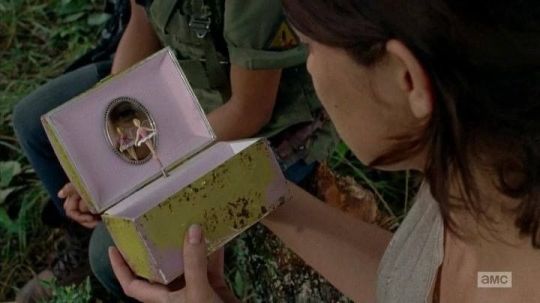
I know there are certain people, mostly haters and skeptics, who get annoyed when our theories change to match the show, but the fact is that as time goes on, we learn more about where the plot is going, and our theories change naturally. It’s only logical that they would. We’ve been wrong many times about when Beth will appear, but looking at the whole, we can see the structure better than ever before.
Let’s talk about the 4-season structure (S4-S8). When Gimple took over in S4, he set the show up for a whole new chapter, as was emphasized in the S4 trailer. He knew a 4-season arc starting with Rick as a farmer and non-leader in order to save Carl. Gimple knew he would move through Rick becoming brutal, having his ups and downs, and Carl would die. The whole point (as far as Rick’s arc goes) was that Carl’s death led to him showing Negan mercy, rather than killing him. It’s what brought Rick full circle and out of his brutality mindset.
Now we come to Beth.
She came front and center in 4x01 with the Bethyl hug, so obviously she was part of Gimple's plan. Let's take a little trip down memory lane, back to S2. TD has talked many times about how Gimple introduced Beth. Though he was only a junior writer in the show at that time, remember that he and only he worked on her suicide arc. With that arc he introduced her to the fandom in a way that made them root for her. Not necessarily like her, you understand, but root for her. I say that because her mindset and actions in S2 made her be perceived as a weak character.

Because she chose to live, people were glad and hoped she would continue to live, even if they saw her as weak overall. That way, they knew her and would remember her back story. That made it easy for him to have her step into a bigger role later in the show, which she did in S4.
I also want to point out that we actually know the showrunners have considered using Beth's death more than once as a catalyst for events in the show. Specifically, as a focal point of tragedy and to affect the other characters’ mindsets. They could've had her actually commit suicide in S2 if they wanted. They didn't, but if they had, what would that have accomplished? In terms of her character, not much. She would've been a disposable character that no one really liked and few remembered. But it would have caused a great deal tragedy for the Greene family. Rick and co. didn't know her very well then, and therefore wouldn't have been very sad about her death, but they would've had a lot of sympathy for the Greene family’s loss. Glenn would have had sympathy for Maggie, Rick for Herschel, and it probably would have affected Daryl, at least somewhat, because he was already in a dark place after losing Sophia.

Then in S3, although it again didn't happen, we know the showrunner planned to have Axel murder Beth in the prison. By then, the whole group had been together on the road for a season, and were much closer. Again, this would have affected TF bc of the tragedy of it, and probably been a catalyst for various plot lines. My point is that they planned more than once to use Beth's "death" to affect other characters and the plot.
After letting S8 percolate in my head for a few weeks, I've concluded that Gimple actually did the same thing when he brought Beth front and center in S4 as he did with her in S2. Of course, it was on a much bigger scale. He set her up in a way that would make people (Daryl) and the audience (again, because of Daryl) care about her deeply. Then Gimple took her away.
Her loss greatly affected both Maggie and Daryl, but also Rick and other members of TF. Because of Noah, it greatly affected events in the plot, sending TF north, toward DC, and sending Daryl spiraling downward into darkness. But I believe that Gimple very strategically reintroduced Beth to the audience in S4/S5 as 1) Daryl's love interest, 2) a person who's become strong, going from suicidal to bad ass, and 3) in an arc that would make us remember her and her back story and allow them to very easily have her step into a bigger role later down the road.

We see a lot of repeating arcs in the show, and the way they've written Beth's arc is no different.
So basically, I believe that Gimple always planned to do the 4-season arc and he had S4 through S8 plan from the very beginning. Because TD identified so many 8s or instances of 4-8 in the show and around Beth, we naturally assumed she’d be part of the 4-season arc. Obviously were wrong. But I think Gimple set her up early in S4 but always planned to have her return later, after that initial 4-season story.
This is been done other shows, in other universes. It may sound silly, but the best example can think of is the Marvel universe. (I'm sure there are better examples, but go with me on this.) TWD, like the Marvel universe, is full of dozens of different characters story lines, arcs, settings, and plots. So, remember after the first Avengers movie, there is an after-the-credits scene (not unlike Morgan's after-the-credits scene in Coda) that introduced Thanos (the purple bad guy in space, for those who don't know).
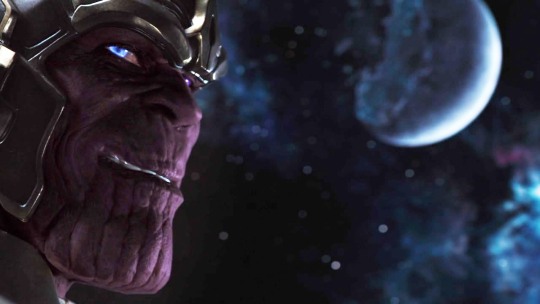
People who read the comics instantly recognized who Thanos was. (Kinda like people who read the TWD comics instantly recognized Beth’s scars as being Andrea’s.) We then didn't see him for several movies. He’s the focus of Infinity War, so he finally showed up in a film several years later. So we had a post-credits scene where they set up a foreshadow or a hint of something to come. But they had other stories to tell, other characters to develop, and it was years before the character they teased in that post-credits scene came into play in a big way.
So I think Gimple set Beth up as part of his 4-season arc, but she was never going to re-enter the story until after AOW ended. We thought she would, and were wrong about that. That doesn't mean she won’t reappear, though.
To recap: Gimple, who is famous for planning 10+ seasons in advance, set up a 4-season arc, and knew from the beginning how S8 would end. He had all the characters and arcs planned out, so he must then have known what would come after as well. He must have S9 already planned.
He tasked a certain female writer (Angela Kang) with writing the important Beth/Daryl episodes,

knowing that Beth would be written out of the story for a time, but that a return would be teased. Meanwhile, in the midst of everything that was going on with Rick's arc (remember what @thegloriouscollectorlady said about Coda really being all about Rick and from Rick's POV) Gimple apparently killed Beth off and then her body then disappeared. The episode in which that happened was called “Coda.”
So think of it this way. If the S4-S8 arc represents the main part of the song, well, the coda should come after that. Norman has hinted at a romance for Daryl in S9, we have some interesting things going on with Morgan in Fear, and Angela Kang will take over as show runner next season. Hmm.
Okay, I guess I haven't actually mentioned music box very much, so let me just say this:
The music box waking up was a resurrection symbol. I just don't think we can get around that. I know not everyone agrees with me on that, but we haven't seen any other symbol associated with a character that has woken up like that after the character dies. Granted, it would be kind of hard to do with other characters. For most others, like Michonne’s sword, Daryl’s crossbow, or Rick's gun, if they woke up and started doing things on their own, well, that would be creepy.
But they particularly chose something that could wake up for Beth. When Carl Carl found it, it was broken. They could've done things differently. The could've used her diary, or her necklace, or something else associated with her as a symbol and left it on the grave as they did with other people like Tyrese. If they wanted to use a music box as her symbol in this same way, they should've introduced earlier. Perhaps she and Daryl could've found it while they were together. It could have stayed broken or just worked the entire time. No, this was very specifically crafted. They used a music box to represent her, even though it was never actually associated with her in the show. It was very obviously broken, even after Daryl “fixed” it. Then, explicably, it suddenly burst to life and started singing again.
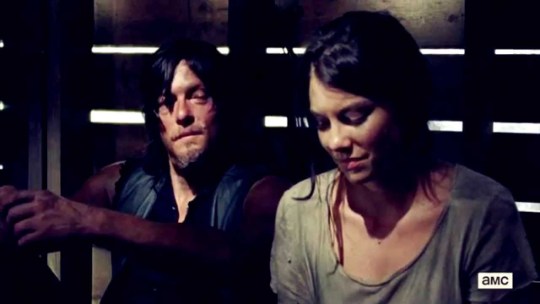
Not many ways that you can interpret that symbol other than resurrection. So I stand by what we’ve always said about the music box. It represents Beth being alive. I also think the symbolism we saw in 5x09 with Glenn breaking the CD goes along with this. Thinking of that reminds me of the line from the American Pie song: The day the music died… So then to reiterate that, we had a BROKEN music box. But then what happened?
“I still sing.”
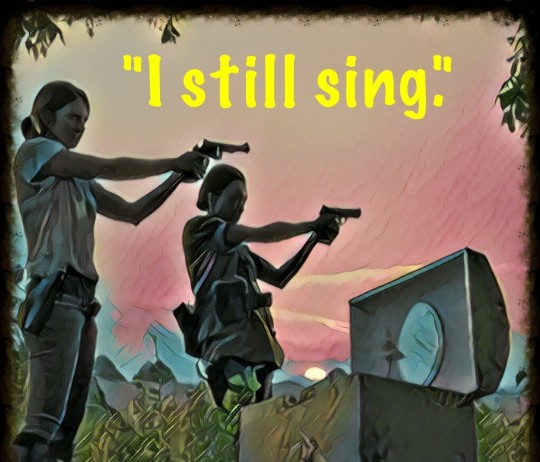
Last time we saw the music box was in 5x16. I think showing it there represented, as I’ve said before, that the music box and what it represents are still in play, but we weren’t going to see it for a while. And we haven't. In 5x16, we saw Carl and Judith looking at it with the Morse code poster behind them, and it was in conjunction with scenes of the Wolves. All of which in my opinion are hints to how she will return. She will return after Carl's death, and probably in conjunction with the Wolves.
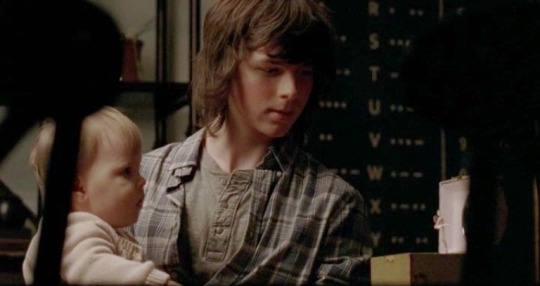
I also want to throw this out there. In 5x16, Aaron found a license plate on the wolf truck that said 816. We hoped that pointed to Beth’s (and possibly the Wolves) return in 8x16. Obviously not. However, we saw the music box in that same episode. So I'm wondering if perhaps it was meant to show that Beth and the wolves would return after 8x16. In other words, the current arc (S4-S8) would end after 8x16, and then the music box would return. Just an idea.
So maybe you will think this is compelling stuff, or maybe you’ll roll your eyes at it. Once again, Norman did hint that Daryl would have some romance after AOW, which will be S9. And Gimple said beginning of S5 that Daryl would eventually find love. So I’m going to reiterate this once more. If next season they bring on a new love interest for Daryl, and it's a genuine love interest, with a lot of the same symbols we’ve seen with other couples (like intertwined fingers while holding hands)
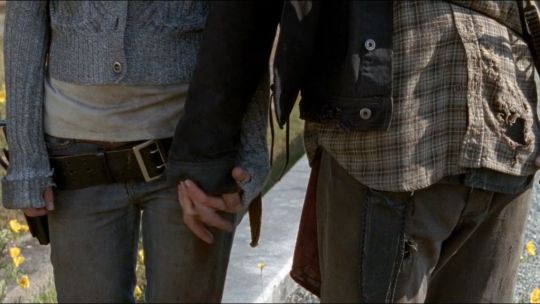
and phrases we’ve heard with other soulmate couples, at that point I will finally give up on Beth's return. Because it will be obvious that they always planned a different love interest for Daryl and it’s not Beth.
But I don’t believe that will be the case. I think Daryl’s love interest will be Beth and she’ll finally get her coda.. The intertwined fingers always show a person’s long-term partner. If Beth wasn’t meant to be that for Daryl, they wouldn’t have shown us the symbols. We’ve seen them with Richonne, Carnid (which made sense bc Carl was never going to have another love interest since he died soon after kissing Enid) and we’re starting to see them with Carzekiel. Between these facts and Norman’s, “If Daryl falls in love with you he’s going to love you for the rest of his life,” Beth is really the only love interest Daryl will ever have.
I think we may see the music box again next season, just before or when she appears, because that's her symbol.

So these are my updated thoughts on the music box. It's going to be a long hiatus, but I'm very hopeful for S9. Thoughts?
#beth greene#beth greene lives#beth is alive#beth is coming#td theory#td theories#team delusional#team defiance#beth is almost here#bethyl#beth's music box
28 notes
·
View notes
Text
Definitive Ranking of Book 1 Episodes, #12/12
12. 1x12 Endgame
Amon stands and lets Korra expose him for drama, Asami and Hiroshi are just like Kevin Bacon, let’s hide in an empty room from the bloodbender, people weren’t all that into justice anyway, and Aang brings the funk.
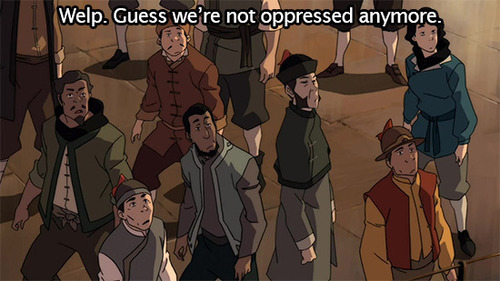
What? It hasn’t been over 4 months since I last did one of these...get out of here!
For those who don’t know, I’ve been going back and rewatching each LoK episode, then definitively ranking the entire season with a series of metas, starting from “worst” to “best.” Wait, no quotes because it’s DEFINITIVE.
I began with the beautiful, heart stopping, breathtaking, life-changing shitshow that was Book 2, because its flaws in some ways became the show’s greatest strength, so it felt very worth the dive. Then I went to Book 4 probably because that’s the time period that interests me a ton, and it was a solid season, but one that sort of felt like it needed some polish. Book 3 is damn near perfect in my opinion, and the one I want to end on for that reason.
So yup, we’re in Book 1! And here’s the thing: rewatching this show, the first season is the one that gives you the least back. It’s not particularly deep or nuanced. And that’s fine! It did a good job expanding the world building, the aesthetics were beyond on-point, and I’ll stand by the characterizations as pretty dang compelling, even if Mako never landed for me until Book 3.
At the same time, had this been the one season mini-series it almost was...I just don’t see still talking about it. And yes, I say that knowing the end game (you see what I did there?) would have been a bit different. But it doesn’t really change that the greatest success of Book 1 was its set up and potential. So, I guess it’s not a shock that the episode at the bottom of this list is its finale. Which is best depicted here:
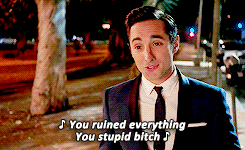
Yeah, it sounds harsh for something that was ~fine~, but each time I rewatch it, it gets even less fine. However, there’s also been a lot on this already. If you haven’t already, read @got-your-back-always-will’s piece on why it was so damn disappointing. Or you could read my words where I call it a narrative beer fart (I think I use this term a lot, to be fair), point out the leaps in logic and reasonable action necessary for it everything to occur, and then talk about kind of shitty, sexist, ableist implications. Hell, even my photo recap touches on this.
Yes, it was all unintentional, but just imagine a character as intersectional as Korra being sent off with her depression having been magically healed by a male character (yes I know Aang is her, but imagery matters and she was passively sitting while he did his thing) and then hooking up with the guy who treated another woman as something stuck to his shoe.

And I mean, add to that the way the main plotline just FIZZLED. Oh man, people aren’t oppressed anymore because the guy who wanted to help them was actually a bender? WHAT. Everything Amon and the Equalists were set-up to be, and it just ends with a crowd shrugging and looking sad.
Like...this ending isn’t the worst thing that’s been on TV. It’s just formulaic and feels not well-planned, which is kind of weird because wasn’t this the only season that *had* been fully scripted? I really don’t want to pile on as if it’s the most toxic thing ever (not by a long shot), but would this have actually been satisfying to anyone?
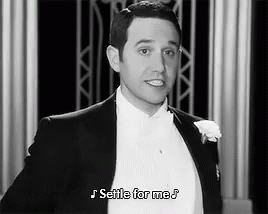
I feel like I’m going to just end repeating myself, and I really don’t want to pile on. So instead, I think it’s important to zoom out and look at what the season was supposed to be accomplishing as a whole.
Korra is the opposite of Aang. Not in a moral sense, but in the sense that Bryke’s process in creating her was literally, “instead of a spiritual, not-super-physical, reluctant male hero who was not happy about his role, what if we had a girl who was super into it, non-spiritual, and kind of a hockey-kid type?”. They talk about this on podcasts and stuff. Aang’s narrative was about how he needed to embrace his role since the world needed him. We’ve seen this before (though Aang and ATLA was very unique, don’t get me wrong) with stories like Harry Potter, or LOTR, or the Star Wars OT, and so on.
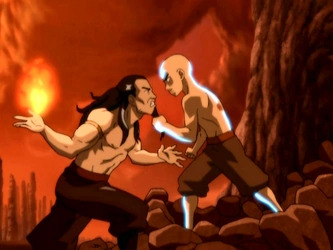
That kind of arc is sort of best summed up by this quote from our pal Dumbledore:
“It is a curious thing, Harry, but perhaps those who are best suited to power are those who have never sought it. Those who, like you, have leadership thrust upon them, and take up the mantle because they must, and find to their own surprise that they wear it well.”
But when you have a character that WANTS to be the hero, what do you do? You write a world that doesn’t want *them*. You write a struggle in their quest to find a place for themselves when the role they’re so ready to take on doesn’t really make sense anymore.
This is the point of the Equalists. Benders are the privileged minority, extorting the oppressed masses in the nonbenders. The Avatar in some ways represents the ultimate bender (with her inherent abilities), and is now in a world skeptical, scared, and teaming for revolution.
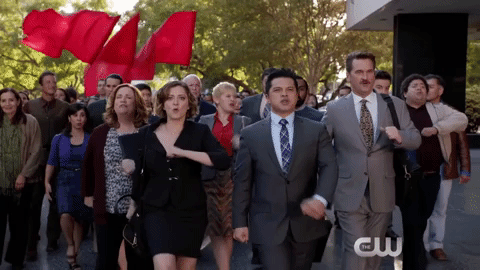
Specifically against her and her power structure. There’s the spiritual aspect to her role, but she was out-of-touch with it in the first season, while also facing a very here-and-now kind of problem.
The conclusion that Korra needed to reach as a character, and where she gets at the end of Book 2 actually (and then spends Books 3 and 4 fine-tuning that role while also going through a very powerful healing arc) is one where she stakes her OWN claim in the world. She defines her role in a way that’s significant to her and the meaning in her heroism comes from her assertion of that agency, and the way she basically screams for her right to exist into being. The world will find it *does* need her, and here’s why, damnit.
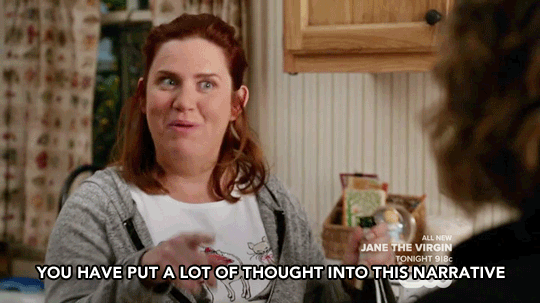
Book 1 didn’t get there at all. Fuck, it didn’t even address things like how Korra’s actions out of bravado were because of her horrible fear of appearing weak. That fear...it’s only something she got over after her healing arc, when she learned that being afraid isn’t a weakness, and she can recontextualize that fear and find a kind of strength in it. Now, it’s possible that whenever it was decided that Book 1 would be 1 of 4 seasons, they made sure to keep room for Korra’s character growth. Except...in 2x01 she’s rather backdialed, so it’s a difficult case to make.
Then, remember how her solution had been (more or less) to punch things? Which is why @projectvoicebend has been referred to as “biting satire” thanks to their exaggerated depiction of that? But in Endgame, she literally saves the day with brute force. Not that Amon *shouldn’t* have been knocked out of a window, but this is rather bizarre messaging.

She unlocked airbending in a time of desperation, and used it aggressively to get rid of the threat. Like...okay. But, we didn’t need to see an entire season to buy this kind of thing happening. Hell, if she had been de-bended in 1x04 and someone else was threatened, I could still see this happening.
Was the implication that it’s the power of love? Had it been Bolin or Tenzin there, just sucks for them? I kind of find that hard to swallow, too. Really, they just needed Amon to be unmasked, and this is the way they contrived Korra to do it. It wasn’t exactly a huge character moment as much as it was leveling up in a video game.
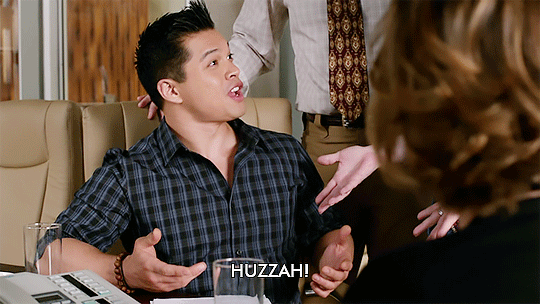
Now, I do think overall it’s good that Korra didn’t find a place for herself in the world at the end of the first season. That was hard-earned, and even creating the new spiritual age wasn’t the endpoint of that theme since people were resistant to change—of losing control. However, could there have at least been an indication that REFORM WAS GOING TO HAPPEN? Yeah, the revolutionaries aren’t exactly blameless here seeing as they bombed an entire city, but Endgame literally reset the tensions in Republic City. Well, until Shiro recapped the creation of an entire democracy for us in 2 sentences.
It was like...the set box that Bryke had created at the beginning of the season needed to stay perfectly intact. And it wasn’t organic at all for Korra to be the person upholding that, because she is inherently such a transgressive character. This is why I’ve called it a round peg in a square hole, and this is why had *that* been the ending to the series, my own reaction would have been as dejected as the people who realized Amon painted a scar on his face.

Hell, what does this even mean on a thematic level? Desperation breeds education? Never idolize anyone who promises simple solutions to your problems? Reincarnation has its uses if you’re in enough pain?
Really, this show is supposed to be about Korra’s growth and trajectory, and...I just am struggling to see much of anything here.
Frankly, it gets worse the longer I think about it too. Equalists are like, bad and junk. Bombing cities and brutalizing your enemies (while evoking genocidal language with that whole ‘impurity’ thing) is not good, mmkay? But from another entirely valid angle, isn’t part of what Amon stood for really about disarmament? Should they have been so cartoonishly evhul that they suddenly needed to de-bend the pacifistic airbender children?

The only thing that kind of worked in this plotline was Asami and Hiroshi. And yeah, I know I’m the ultimate Asami fangirl so it’s going to read biased, but I’m serious: she was the only nonbender we really heard from about this. She was the one who had the same pain that her father had (her mother’s death at the hands of bending gangs), and experienced the same type of oppression he did, and still resoundly rejected violence. I’m not sure what she saw as a pathway to reform, but she could tell that Hiroshi’s actions weren’t coming from a place of empathy any longer, even if it might have begun like that.
Rewatching everything today when nazi punching discourse is disturbingly not theoretical, there is something a little frustrating about how simplified even this conflict was made. I’m not saying the Equalists are fascists at all, but can we at least try and position ourselves in the nonbender perspective, when there’s a lot of valid grievances, and Amon is just doing exactly what Aang did to Yakone (initially, back when he was targeting just triad members)? That’s worth a conversation! Sure, we got Asami standing up to Tarrlok in 1x08, sure, but her drive to take down her father was so clearly personal thanks to the years of deception, that the nonbender oppression sort of got swallowed in it all.
I still think it worked better than anything else, especially how Asami was not able to bring herself to harm her father the way he was willing to do. It’s tragic, and I don’t even begrudge Bolin swooping in for the save for that reason, even though the whole passive-woman/active-man thing is what I’m bitching about for Korra. But it’s different. Right?
I also found Tarrlok and Amon’s ending perfectly fine (and VERY jarring for a Y7 show) given that it was another exploration into abuse, the cycle of violence, and a kind of poetic self-fulfilling prophecy. But that’s more for 1x11.
God, you know what it is? Bryke never figured out what they wanted to say with Book 1. They had great worldbuilding ideas, and the tensions set up were quite compelling. It just lacked a *point* beyond “this might be cool to explore.” It was, and then the time came to tie it up, so it splatted.
In the end, they’re just damn lucky that Korra had something to say of her own.

Book 2 ranking/essays found here
Book 4 ranking/essays found here
66 notes
·
View notes
Text
‘The Walking Dead’ Review: ‘The Calm Before’ Brings Together the Communities for Tragedy
[Editor’s note: The following contains spoilers for “The Walking Dead” Season 9 Episode 15, “The Calm Before.”]
This Week On “The Walking Dead”
“The Calm Before” is complicated. On the one hand, it’s an effective piece of horror, skillfully playing out the dread of what, exactly, Alpha is going to do as reprisal for her stolen daughter, culminating in a truly memorable and ghastly image. The performances are strong, many characters are reunited, and it’s a vastly superior hour (plus) than the last big shocker episode, “The Day Will Come When You Won’t Be.” But as another chapter in the ongoing narrative, it just makes me want to throw up my hands. Here, again, is another pile of agonizing misery for our heroes. Here, again, the audience is strung through the emotional wringer so a new Big Bad can prove how super dangerous they are. It’s an exhausting and exasperating hour of television. Between this episode and “Scars” last week, the show’s as dark as it’s ever been.
Man Is The True Monster
I’ve spent the last several weeks making exaggerated jokes about how something terrible was going to happen at the fair, because the show has trained us to always expect the worst, especially when it looks like things might be going right for our heroes. And lo and behold, the episode ends with Alpha establishing a “border” (which doesn’t make a lot of sense, aren’t the Whisperers nomads?) by killing a number of significant characters and placing their zombified heads on pikes. The casualties are significant, including promising newer characters introduced this year, like Brett Butler and Ozzy the Highwayman (who wasn’t around long but made a great first impression), to more established veterans like Enid, Tara, and Henry.
The show gives Henry the big final reveal treatment, probably because Carol is in the group that finds the border, but it’s Tara that really stings the most. She’s long been a personal favorite, and her new role as Hilltop’s leader seemed to finally position her to receive the prominence that Alanna Masterson has long deserved on this show. But these deaths are meant to hurt both the characters and the audience, and it’s a struggle to be that invested in what happens next. Presumably our heroes fight the Whisperers now, just like they overcame the Saviors (albeit hopefully in fewer episodes). But I can’t help wondering past the end of that conflict and wondering what atrocity will be committed to show how dangerous the next Big Bad will be. Maybe Ezekiel is skinned alive while Carol is forced to watch? The fact that an idea like that isn’t outside the realm of possibility is just exhausting. Such is the nature of “The Walking Dead.” It’s a well of endless misery with no bottom.
Read More:‘The Walking Dead’ Review: ‘Scars’ Offers Answers, None Of Them Satisfying
But as mentioned, the execution of the turn is effective. Alpha’s presence at the fair (complete with wig from a scalped Hilltopper) immediately sets off alarm bells, and our heroes spend a great deal of time reaffirming their connections and then basically all doing the “I’ll be right back” horror trope. Henry’s got to go check on that pipe, Siddiq will tell Michonne his big news when he sees her back at Alexandria, etc. For a hot second, it seems like Ezekiel will be one of the victims, since he actually has a prolonged interaction with Alpha, as she tries to act normal and can’t quite succeed. It’s nice to see Morton stretch a bit more in the role, and her final scene with Lydia is particularly strong, as she realizes she’s truly lost her daughter. She manages to hold it together until she’s back at camp, shedding a single tear and of course killing the Whisperer who accidentally witnesses her moment of weakness. Got to keep the sheep in line!
“The Walking Dead.”
Jackson Lee Davis/AMC
A Shred of Humanity
It should be said that before things go south, the fair is really nice. It’s been ages since we’ve seen all these characters share screen time, and it’s been even longer for the characters themselves, so it’s a relief to see everyone together again. Plus Eugene gets knocked into a dunk tank and Jerry pretends to be a horse, so, bonus.
The most significant development is that the various community leaders come together to discuss the Lydia problem and agree to offer her asylum. Tara is justifiably nervous about retaliation against Hilltop, which leads to a weird speech by Michonne about how many of them weren’t trusted when they first showed up, but now they’re all friends. Which wasn’t the argument Tara was making at all, but she winds up agreeing with Michonne. It’s frustrating that even when our heroes do the right thing, it’s for weird nonsense reasons. The argument for protecting Lydia could be won or lost on the merits, if anyone actually engaged with it seriously, but Michonne’s switch has flipped from “mean” to “nice,” so that’s the end of it.
The upside is that this discussion leads to Ezekiel pulling out the charter, which everyone agreeably signs. It’s the episode’s big feel-good moment, and it delivers. Michonne deferring to Gabriel to sign on behalf of Alexandria is a nice touch. It’s curious that everyone wouldn’t want to make a big show of it in front of the whole fair, but it’s still a victory in a time where those are hard to come by.
The episode’s final scene is hard to swallow, as Siddiq is spared by Alpha for absolutely no reason other than to convey that before they died, the victims all came together to fight the Whisperers, even though they were from different communities. It’s a borderline hilarious last-minute attempt to find a silver lining, especially because the divide between the communities has only ever been attributed to Michonne’s withdrawal into Alexandria. It’s nice of the show to insist that these deaths won’t lead to community in-fighting, but as far as we know three of the communities have all been square with each other over the years, with Michonne as the lone holdout. It’s a solution in search of a problem.
“The Walking Dead.”
AMC
The Remains
The decapitation border is a big moment from the comics, which I have not read. Apparently, the victim line-up was quite different, but such changes are par for the course at this point. It’s interesting that the show feels compelled to stick with those big events, but is perfectly content to change the characters. Doesn’t matter whose heads are on those sticks, as long as there are some heads on sticks.
The reveals of the victims, with oblivious people at the fair wondering about the whereabouts of each character, was particularly effective. Alden scanning the crowd for Enid as he performs his number with Luke was probably the most devastating.
It is kind of funny how Alpha seemed to know how important each character was and ordered them accordingly.
Poor Hilltop can’t hang on to a leader to save their lives. Who’s even left there that has a speaking part? Is it Earl’s time to shine?
Pro tip to the “Walking Dead” social team: comparisons like this do you no favors.
Jerry gets to declare the opening of the First Annual Inter-community Reunification Fair (or FAIR Fair), plus he survives the episode, which frankly was a big surprise.
Looks like Rachel runs Oceanside now. She doesn’t have much to do this episode besides say, “Oceanside’s down,” but she’s there.
All this talk about the movie and it’s a Baby Huey short. Brutal. Beggars can’t be choosers, but jeez, not even Tom and Jerry? Anyway, the feature was “Sliver” and you can’t prove me wrong.
When Ezekiel says that Henry’s taking a girl to the movies tonight, Carol says, “Everything you just said sounds completely impossible,” which is supposed to be a commentary on the old-world amenities they’ve managed to resurrect for the evening, but can also be interpreted as a sick burn on Henry.
Still mad that the show treats Henry as the big final kicker in the head line. Justice for Tara, who flipped Rick off that one time and was thus one of the show’s top 3 characters.
Grade: B-
The post ‘The Walking Dead’ Review: ‘The Calm Before’ Brings Together the Communities for Tragedy appeared first on .
The post ‘The Walking Dead’ Review: ‘The Calm Before’ Brings Together the Communities for Tragedy appeared first on .
from WordPress http://www.richmegavideo.com/the-walking-dead-review-the-calm-before-brings-together-the-communities-for-tragedy/
0 notes
Text
How a British royal's monumental errors made India's partition more painful
http://bit.ly/2vHl0B5
Lord Louis Mountbatten, viceroy of India, met with Indian leaders to discuss partition. Max Desfors/AP
The midnight between August 14 and 15, 1947, was one of history’s truly momentous moments: It marked the birth of Pakistan, an independent India and the beginning of the end of an era of colonialism.
It was hardly a joyous moment: A botched process of partition saw the slaughter of more than a million people; some 15 million were displaced. Untold numbers were maimed, mutilated, dismembered and disfigured. Countless lives were scarred.
Two hundred years of British rule in India ended, as Winston Churchill had feared, in a “shameful flight”; a “premature hurried scuttle” that triggered a most tragic and terrifying carnage.
The bloodbath of partition also left the two nations that were borne out of it – India and Pakistan – deeply scarred by anguish, angst, alienation and animus.
By 1947, the political, social, societal and religious complexities of the Indian subcontinent may have made partition inevitable, but the murderous mayhem that ensued was not.
As a South Asian whose life was affected directly by partition, and as a scholar, it is evident to me that the one man whose job it was, above all else, to avoid the mayhem, ended up inflaming the conditions that made partition the horror it became.
That man was Lord Louis Mountbatten, the last Viceroy of British India.
How did Mountbatten contribute to the legacy of hatred that still, 70 years later, informs the bitter relationship between India and Pakistan?
A murderous orgy
People crowd onto a train as mass displacement happens during partition. AP Photo
Let us begin by recognizing the scale of barbarity that was unleashed by the mishandling of partition.
No one has captured this more poignantly than Urdu’s most prominent short story writer, Saadat Hasan Manto, who according to his grandniece and eminent historian Ayesha Jalal “marveled at the stern calmness with which the British had rent asunder the subcontinent’s unity at the moment of decolonization.”
In “The Pity of Partition,” Jalal channels the content of Manto’s work in Urdu to write:
“Human beings had instituted rules against murder and mayhem in order to distinguish themselves from beasts of prey. None was observed in the murderous orgy that shook India to the core at the dawn of independence.”
As author Nisid Hajari reports in “Midnight’s Furies,” a chilling narrative of the butchery: “some British soldiers and journalists who had witnessed the Nazi death camps, claimed partition’s brutalities were worse: pregnant women had their breasts cut off and babies hacked out of their bellies, infants were found literally roasted on spits.”
Indeed, it does not matter which was worse. What is important to understand is that partition is to the psyche of Indians and Pakistanis what the Holocaust is to Jews.
Author William Dalrymple calls this terrible outbreak of sectarian violence – Hindus and Sikhs on one side and Muslims on the other – “a mutual genocide” that was “as unexpected as it was unprecedented.”
Could the genocide have been avoided?
The violence was not, in fact, entirely unexpected. On August 16, 1946, literally a year before actual partition, a glimpse of what was to come was on display: In what came to be called “the week of the long knives,” three days of rioting in Calcutta left more than 4,000 dead and 100,000 homeless.
The hellish proportion of the slaughter that was to come was, however, unnecessary.
Well before the August of 1947, those following the tumultuous political boil in India – including U.S. Presidents Franklin D. Roosevelt and Harry S. Truman – fully understood that it was time for Britain – now a flailing power made bankrupt by World War II – to leave India.
As 1947 dawned, the task before the British was to find the least worst way to retreat from India: to manage the chaos, to minimize the violence and, if at all possible, to do so with some modicum of grace.
To perform this job, King George VI sent his cousin Lord Louis Francis Albert Victor (“Dickie”) Mountbatten to India as his last viceroy. This great-grandson of Queen Victoria – the first British monarch to be crowned Empress of India – was, ironically, given the task of closing the imperial shop, not just in India but around the world.
In India, he proved to be monumentally unequal to the assignment.
Mountbatten arrived in India in February 1947 and was given until June 1948 – not 1947 – to complete his mission. Impatient to get back to Britain and advance his own naval career, he decided to bring forward the date by 10 months, to August 1947 (he eventually did become first sea lord, a position he coveted because it had been denied to his father).
Lord Mountbatten being received on his arrival to India. In this picture he is shaking hands with Liaquat Ali Khan, who became the first prime minister of Pakistan. Next to him is Jawaharlal Nehru, who became the first prime minister of India. Saktishree DM, CC BY-ND
How crucial were those 10 months?
I would argue, they could have meant the difference between a simply violent partition and a horrifically genocidal partition.
A hurried drawing of border lines
The context for a bloody partition was set with the decision to sever Bengal in the east and Punjab in the west in half – giving Jinnah what he called a “moth-eaten Pakistan.” That killed any hopes of a federated India, which was Jinnah’s preference, if it allowed for power sharing and autonomy to Muslim majority provinces.
To decide the fate of 400 million Indians and draw lines of division on poorly made maps, Mountbatten brought in Cyril Radcliffe, a barrister who had never set foot in India before then, and would never return afterwards. Despite his protestations, Mountbatten gave him just five weeks to complete the job.
All of India, and particularly those in Bengal and Punjab, waited with bated breath to find out how they would be divided. Which village would go where? Which family would be left on which side of the new borders?
Working feverishly, Radcliffe completed the partition maps days before the actual partition. Mountbatten, however, decided to keep them secret. On Mountbatten’s orders, the partition maps were kept under lock and key in the viceregal palace in Delhi. They were not to be shared with Indian leaders and administrators until two days after partition.
Jaswant Singh, who later served as India’s minister of foreign affairs, defense and finance, writes that at their moment of birth neither India nor Pakistan “knew where their borders ran, where was that dividing line across which Hindus and Muslims must now separate?”
He adds that as feared and predicted, this had “disastrous consequences.” The uncertainty of exactly who would end up where fueled confusion, wild rumors, and terror as corpses kept piling up.
As historian Stanley Wolpert writes in “Shameful Flight,” Mountbatten kept the partition maps a closely guarded secret, as he did not want the festivities of British transfer of power to be marred or distracted.
“What a glorious charade of British Imperial largesse and power ‘peacefully’ transferred,” lamented Wolpert as he contemplated the possible implications of Mountbatten’s hubris.
70 years later
As the preeminent biographer of all the major political actors of British India’s last days, Wolpert acknowledges that many – and, most importantly, Indian political leaders themselves – contributed to the chaos that was 1947.
But there is no room for doubt in Wolpert’s mind that “none of them played as tragic or central a role as did Mountbatten.”
By botching the administration of partition in 1947 and leaving critical elements unfinished – including, most disastrously, the still unfinished resolution to Jammu and Kashmir – Mountbatten’s partition plan left the fate of Kashmir undecided.
Mountbatten, thus, bestowed a legacy of acrimony on India and Pakistan.
It was not just rivers and gold and silver that needed to be divided between the two dominions; it was books in libraries, and even paper pins in offices. As Saadat Hasan Manto’s fictional account conveys, the madness was such that even patients in mental hospitals had to be divided.
Yet, Mountbatten, the man who would fret incessantly about what to wear at official ceremonies, made little effort to devise arrangements for how resources would be divided, or shared.
Learning from history
Nowhere does the unfinished business of partition bleed more profusely than in the continuing conflict between India and Pakistan over Jammu and Kashmir.
Would a little more attention and a few more weeks of effort in 1947 have spared the world a nuclear-tipped time bomb that keeps ticking on both sides?
We can never know the answer to this question.
Nor can, or should, I believe, India and Pakistan blame the British and Mountbatten for all their problems. Seventy years on, they have only themselves to blame for missing opportunity after opportunity to fix the troubled relationship they inherited.
However, maybe, today, on the 70th anniversary of their birth, both India and Pakistan can take a break from simply bashing each other and recognize that at times history can deal you a bad hand in many different ways – in this case, due to the hasty and monumental errors of a British royalty. But also recognize, it is on you to learn from history and fix it.
Adil Najam does not work for, consult, own shares in or receive funding from any company or organization that would benefit from this article, and has disclosed no relevant affiliations beyond the academic appointment above.
0 notes